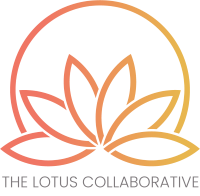|
Andrea Wachter, an eating disorder specialist and Licensed Marriage and Family Therapist in the Santa Cruz area we mutually refer to, recently wrote an enlightening article on Orthorexia published in Good Times (http://www.gtweekly.com/index.php/santa-cruz-news/good-times-cover-stories/5540-orthorexia.html). It inspired me to share some about what I took from Andrea’s writing and offer some of my own perspective.
Orthorexia nervosa is a relatively new term on the medical, health, and eating disorder scenes, but I think almost everyone has seen or can imagine the way this disorder plays out. Living in Santa Cruz/the Bay Area, it is impossible to avoid the “healthy eating” movement. Residents of this area are constantly discussing the latest trends and news regarding how to “eat well” and the dangers of certain foods. This makes a discussion of orthorexia particularly relevant. Orthorexia typically begins with the benign or even positive goal to eat healthy. People who develop orthorexia typically start by eliminating particular foods such as those processed or high in sugar. Soon enough, this progresses to eating only organic, becoming vegan or gluten-free, or perhaps even cutting out entire food groups. Exercise regimes become more intense and rigid, striving to be the “healthiest” one can be. Orthorexia presents as an obsession with correct or righteous eating. It takes what started as a goal to take care of oneself to a self-destructive extreme. For people with orthorexia, every encounter with food is an opportunity to eat right, to be as pure as possible, to rise above other’s standards of healthy eating. If they fail to eat solely within their self-determined limits, they punish themselves by further tightening their food rules, going on a fast/cleanse, or exercising more than usual. The orthorexic’s self-esteem and sense of “okay-ness” becomes completely intertwined with the purity of their diet. The cleaner their food, the better they feel about themselves and the less anxious they feel about how they compare with others. Orthorexia is about more than just food, exercise, and body. Eating in a rigid way gives people who develop this disorder a false sense of security or control that surrounds how clean they are eating and how much they are exercising. Someone with orthorexia is likely to think, “A, B, and C may not be going well in my life, but at least I am eating ‘perfectly’ and living the healthiest possible lifestyle”. Orthorexics distract from their uncomfortable emotional states and/or reduce their anxiety by rigorously managing what goes in and out of their bodies. I recently spoke with a friend with no history of eating disorder or disordered eating. She talked about a week-long juice cleanse she did with her husband. She shared that after the cleanse was over, she found herself somewhat afraid of food and fixated on what she was consuming. This anxiety about her diet was completely new to her, and she attributed this shift to the cleanse. After about a week, her obsessive thoughts about food subsided, and she found herself eating normally again. However, the experience led her to decide she would not do another cleanse. The aftermath was not worth the potential gain. I relay this story as an example of how eating “clean” or “healthy” can spiral into a problematic state of being. My friend, simply because she went on a short-term diet, became fixated on and anxious about food. Once someone has allowed her body and brain to be impacted by restriction (even if it’s only restriction of certain foods), it creates a cycle of deprivation that links with psychological distress (i.e. anxiety and obsessive thoughts). Because my friend did not have some of the underlying issues linked with developing orthorexia (e.g. low self-esteem, loss/grief, history of trauma, an anxiety/mood disorder), the difficulties ignited by her cleanse were short-term. However, her situation is a testament to the powerful influence of diet on one’s well-being. Orthorexia nervosa is not just a desire to eat and be healthy. As Andrea writes, "It is extremely limiting, very time-consuming and, counterintuitively, it can lead to malnutrition." It is a serious and inflexible pattern of thoughts, behaviors, and beliefs connected with deep pain and suffering. A common and widely accepted lifestyle which includes healthy eating and frequent exercise becomes a confining and immovable trap that keeps one from living freely and fully. If you believe you or someone you know has orthorexia, please read Andrea's article. Consider seeking professional help from a therapist and/or dietitian. Know that you are not alone and beginning to explore the underlying factors may be terrifying now, however, it will eventually empower and restore you. An obsession with healthy eating is not true health. Being able to love yourself and live your life regardless of what you have eaten and whether you have exercised is what each of us deserves. The Lotus Collaborative provides free assessments, and we encourage you to call us, 831-600-7103
0 Comments
Leave a Reply. |
The
|
2125 Delaware Ave, Suite A, Santa Cruz, CA, 95060
2500 Market Street, San Francisco, CA 94114

 RSS Feed
RSS Feed